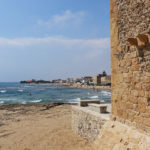Argentina, Adua and Corsaro: Cataniaʼs historical open-air theatres
Outdoor cinemas (known as Arenas) were once a must for Catania’s youth, but now they struggle to fascinate new generations whose taste is probably not the same as their parents’. Cheaper tickets for young people and more appealing programs could be the solutions to encourage a younger audience to choose these locations over other forms of entertainment and to rekindle the desire to take care of an important part of our past
«During the ʻ50s there were almost sixty arenas which hosted five thousand spectators in Catania. Nowadays the city offers many more entertainments, so the arenaʼs audience is smaller but it is more demanding», says nostalgically Mr. Gallitto, cinema operator at Arena Corsaro, whose owner, Lodovico Gallina, is the oldest in the field in Catania. In our city the main arenas are: Argentina, Corsaro and Adua.
THE MOVIES CHOICE. Arena Argentina, born in 1945, is now managed by Mr. Surrentino, who took charge of it after its closure in 1980-81. «I am also the owner of cinema King, which is reserved exclusively for auteur films thanks to our Cinestudio festival. The arena planning focuses on arthouse movies, but we also offer less challenging movies in the summer», said he. It is not very different the opinion of Francesco Gallina (Lodovico Gallina’s grandchild), owner of Arena Adua and cinema Moderno at Mascalucia: «At the arena we offer the best of the winter program: our selection is of a commercial nature, so it is based on the highest-grossing films, but it is especially a qualitative one. For example, this year we have dedicated a film festival to Sorrentino and we generally focus on Oscar winning movies and directors like Woody Allen, without disregarding Italian comedy which lightens our program. However, we avoid genres such as “cinepanettone”». The old Mr. Lodovico, by contrast, allows his grandchildren to help him to select the cinematographic offer, so they can satisfy the young audience’s tastes too.
SPECTATORS’ TASTES. «Nowadays, the audience is more educated and demanding: we once focused on adventure, action and historical movies and comedy: you only needed to show Rambo or Franco Franchi and Ciccio Ingrassia to have a roomful. But now spectators look for arthouse and amateur cinema at the arena» told Antonio Gallitto from his experience at Arena Corsaro. If on the one hand, the adult audience appreciates more engaged movies, on the other, you have to satisfy the demands of those who want to spend summer evenings with a smile: «Compared to cinema King’s arthouse movies ‒ said Mr. Surrentino ‒ I try to offer a more extended program during the summer, so that I can attract more spectators».
FEWER YOUNG. Not only the audience’s demands have changed over the years, but also the audience itself: «Those who were high-school students in the ʻ70s and ʻ80s, that is, my contemporaries that hanged out at the cinemas of Catania like me, now are the same who regularly hang out at arena Argentina: this means that the audience’s age has increased while young have decreased. However, compared to the first decade of 2000, there was fortunately a comeback». The owners of the other arenas agree with him: in the face of young “absence”, the discounts available for students during certain evenings are the solution. What are the causes of this decrease? Many more different entertainments offered in the city and the possibility to watch or download movies through Internet.
CINEMA AND HISTORY. Managing cinema and arenas is a trade which requires passion: «In the winter I manage the cinema Trinacria at Misterianco, in the summer the arena Corsaro. It is everything to me: I was born there and it has always been my work. I experienced the passage from film to digital firsthand» told us Lodovico Gallina with emotion. Arena Corsaro was born in 1960-61 from a pile of old huts which Mr. Gaetano Corsaro took over, the arena Adua took the place of the old cinema Adua (located in via Ciccaglione) in the early ʻ70s and it has always been managed by Gallina family. This means that arenas are historical parts of our city and, as such, we have to take care of them.
Translated into English by Daniela Marsala



